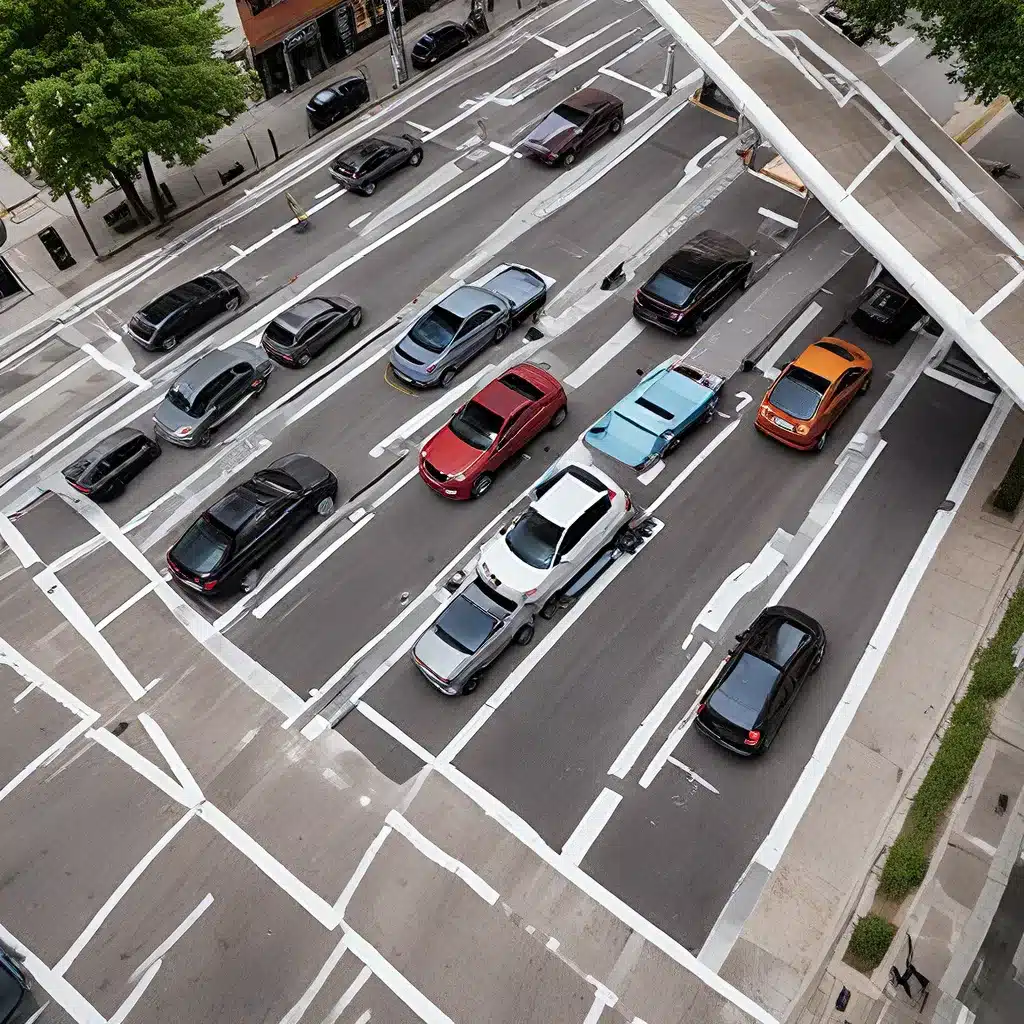
In the rapidly evolving world of sensor networks and the Internet of Things (IoT), cities are harnessing the power of connected technologies to tackle one of the most persistent urban challenges: parking. Smart parking solutions, enabled by a network of strategically placed sensors, are transforming the way we navigate and manage parking in metropolitan areas, leading to enhanced mobility, reduced congestion, and improved overall urban experiences.
The Rise of IoT-Driven Smart Parking
At the heart of smart parking solutions lies the integration of IoT technology. Sensors, cameras, and other connected devices are deployed throughout a city’s parking infrastructure, continuously monitoring the availability of parking spaces. This real-time data is then fed into a centralized system, which can provide drivers with up-to-the-minute information on vacant spots, guiding them to the nearest available parking.
The source information highlights the significant investments cities in the Gulf Cooperation Council (GCC) region, such as Dubai, Doha, and Riyadh, have made in IoT-driven smart parking initiatives. These smart city projects aim to revolutionize urban mobility and enhance the overall quality of life for residents and visitors.
Optimizing Traffic Flow and Reducing Congestion
One of the primary benefits of sensor-enabled smart parking is its ability to alleviate urban congestion. By providing real-time information on available parking spots, drivers can efficiently navigate to their destinations, avoiding the endless search for a vacant space that often leads to traffic jams and gridlock.
The source information notes that in 2018, Dubai’s Roads and Transport Authority (RTA) approved a project investment of AED 161 million to enhance the city’s smart traffic systems. This initiative involved the installation of traffic monitoring and data capturing systems, including cameras, vehicle detection devices, and weather sensors, to optimize traffic flow and reduce congestion.
Enhancing Convenience and User Experience
Smart parking solutions go beyond just solving the parking challenge; they also significantly improve the overall user experience. Drivers can now use mobile apps or connected navigation systems to locate and reserve parking spots in advance, eliminating the frustration of circling the block and wasting time searching for an available space.
Furthermore, smart parking systems often integrate advanced features, such as automated payment processing and personalized recommendations based on user preferences. This level of convenience not only enhances the driving experience but also fosters a stronger sense of urban connectivity and citizen engagement.
Optimizing Energy Efficiency and Sustainability
IoT-driven smart parking solutions also contribute to sustainability and energy efficiency in urban environments. By reducing unnecessary vehicle idling and eliminating the need for drivers to constantly search for parking, smart parking systems can significantly lower fuel consumption and greenhouse gas emissions.
The source information highlights the role of smart grids and the integration of IoT technology in revolutionizing energy distribution and management. For example, Dubai Electricity and Water Authority (DEWA) has invested AED 7 billion in a comprehensive smart grid program, which has resulted in reduced electricity losses and improved customer experiences.
Enhancing Public Safety and Emergency Response
Beyond traffic management and user convenience, sensor-enabled smart parking systems can also contribute to public safety and emergency response. IoT-connected cameras and sensors can monitor parking areas in real-time, detecting suspicious activities or potential threats and alerting the authorities promptly.
The source information cites the example of Doha’s smart city initiatives, where AI-powered CCTV systems are used to monitor road networks and pedestrian movements, automatically detecting unusual activities or dangerous incidents and notifying emergency responders.
Enabling Data-Driven Decision Making
The wealth of data generated by smart parking systems provides valuable insights that can inform urban planning and policy decisions. By analyzing parking usage patterns, occupancy rates, and traffic flow data, city authorities can optimize parking infrastructure, adjust pricing strategies, and implement more effective transportation policies.
This data-driven approach to urban management allows cities to proactively address challenges, allocate resources efficiently, and deliver better services to their citizens. As the source information mentions, IoT-enabled apps and sensors can also facilitate citizen engagement, enabling residents to provide feedback and participate in city planning processes.
Overcoming Challenges and Ensuring Cybersecurity
While the adoption of sensor-enabled smart parking solutions offers numerous benefits, it also presents some challenges that must be addressed. One of the primary concerns is ensuring cybersecurity and data privacy, as the network of connected devices and infrastructure can be vulnerable to cyber threats.
To mitigate these risks, cities must invest in robust security protocols and encryption measures to protect the sensitive data collected by smart parking systems. Continuous monitoring, regular software updates, and collaboration with cybersecurity experts are crucial to safeguarding the integrity of these systems.
The Future of Sensor-Enabled Smart Parking
As the Internet of Things continues to evolve and 5G networks expand, the potential of sensor-enabled smart parking solutions becomes even more promising. The integration of autonomous vehicles and connected infrastructure will further enhance the efficiency and convenience of urban parking management.
The source information highlights the emerging technologies being tested in the GCC region, such as autonomous shuttles and electric vertical take-off and landing (eVTOL) aircraft, which will play a crucial role in shaping the future of urban mobility and transportation.
As cities continue to prioritize sustainability, livability, and citizen-centric initiatives, sensor-enabled smart parking solutions will undoubtedly remain at the forefront of urban innovation. By leveraging the power of IoT and data analytics, these systems will continue to transform the way we navigate, park, and experience our cities, paving the way for a more efficient, sustainable, and connected urban future.
To explore more about sensor networks, IoT applications, and related technologies, visit sensor-networks.org.